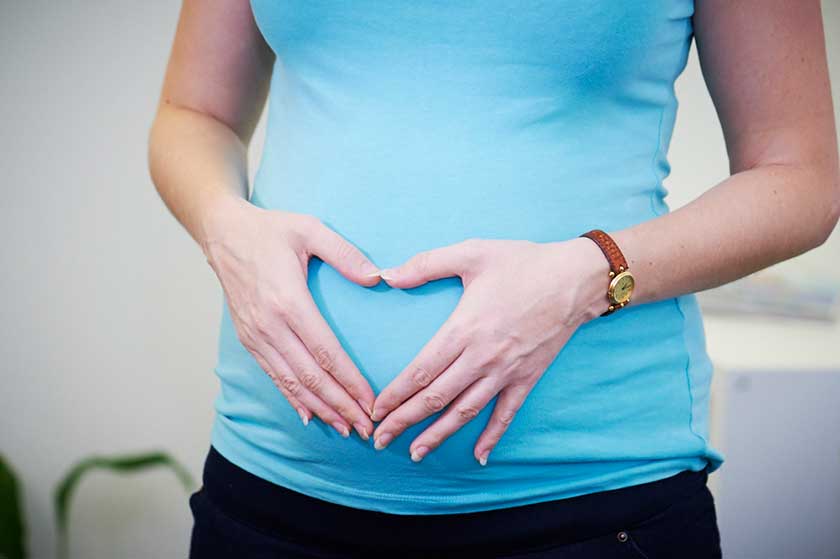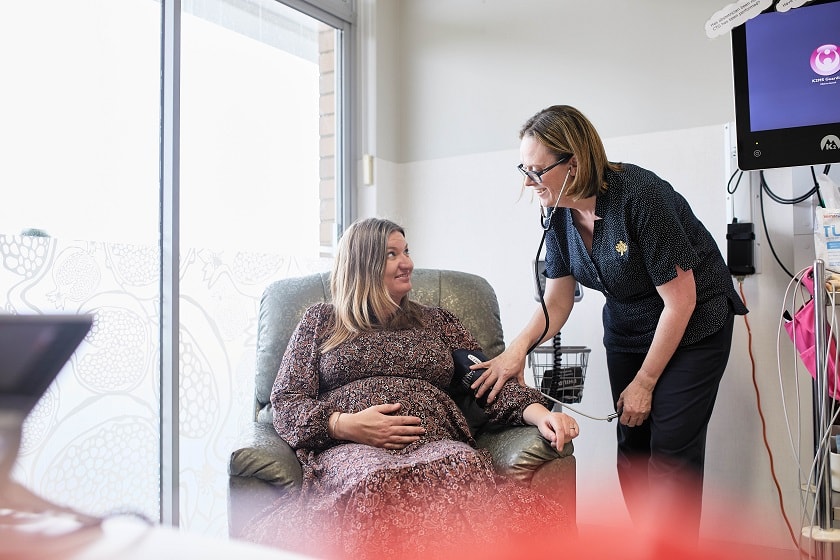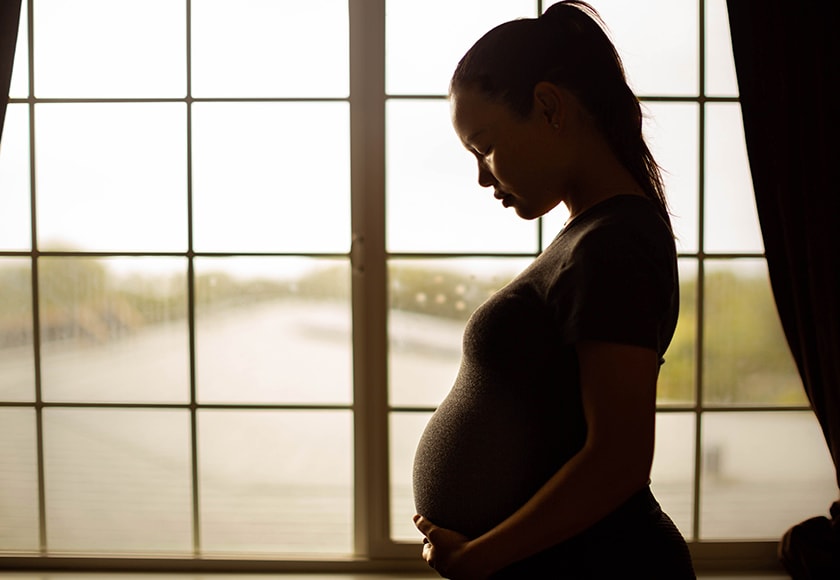Feeling anxious during your early pregnancy is common.
Unfortunately, the first trimester (up to 12 weeks) is when you are most likely to experience a pregnancy loss.
This is also the time when pregnancy symptoms first hit and when you may not have told your wider support network (i.e. family and friends) that you are pregnant. This can leave you feeling a bit more alone than normal.
If you have any concerns or are worried about your health, it is best to message or book an appointment with your obstetrician, or if you need urgent care after hours, call your obstetrician. This is one of the key benefits of choosing to be cared for by a private obstetrician, they are available when you need them.
If you have not yet seen an obstetrician, go to your nearest emergency department.
Common issues
Heartburn and indigestion
This is relatively common and uncomfortable symptom of pregnancy. Speak to your obstetrician if you are experiencing heartburn.
Generally antacids like Mylanta or Gaviscon are safe, but if heartburn continues, there are some safe, prescribed alternatives
Constipation
Similar to heartburn and indigestion, constipation in early pregnancy is common. You should not worry if you are experiencing constipation - try to increase the fibre in your direct and drink plenty of water. Aperients such as Movicol or Metamucil are very safe to start with.
If you develop haemorrhoids as a result of having trouble going to the toilet, there are some safe and effective treatments available. Speak with your doctor.
Excessive nausea and vomiting
The dreaded morning sickness is a very common side effect of pregnancy for women in the first trimester. Generally, small snacking can help, and the most important first step is keeping up your hydration.
If your nausea or vomiting is severe and you can’t keep fluids down for more than 12 hours, call your obstetrician as they may need to look at safe medications or ultimately IV fluids.
Cramps
Cramps in your uterus are not uncommon in early pregnancy. They may be a result of implantation into the uterine lining. If cramps are ongoing or severe, call your obstetrician.
Bleeding in early pregnancy
Many women experience bleeding early in pregnancy and many still go onto have a healthy baby. However, any bleeding should be investigated - as an ultrasound can hopefully both diagnose the cause, plus put your mind at rest.
Miscarriage
A miscarriage occurs when the pregnancy stops. The first signs can be a heavy bleed and the pregnancy passing through your body, however these can can also be asymptomatic, with no bleeding and continuation of all pregnancy symptoms.
If you have any bleeding, it is important to call your obstetrician or go to your nearest emergency department.
High fever
It is really important that you try to keep your temperature as normal as possible and that you don’t get a high temperature. Panadol is safe in pregnancy to reduce your temperature.
If you have a high temperature of are otherwise unwell, call your obstetrician or GP as soon as possible..








